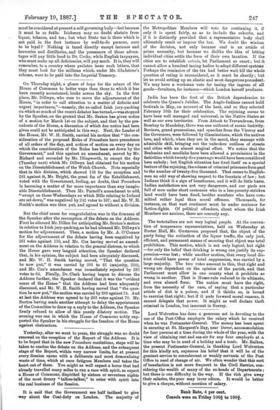India has been the first of the British dependencies to
celebrate the Queen's Jubilee. The Anglo-Indians cannot hold festivals in May, on account of the heat, and so they selected February 16th for their celebration. The rejoicing seems to have been well managed and universal, in the Native States as well as our own territories. From Attack to Trevandrum, from Bombay to Mandalay, there was one outburst of scenic festivity. Reviews, grand processions, and speeches from the Viceroy and the Governors, were followed by illuminations, which the natives love, and which, when they are in the mood, they manage with admirable skill, bringing out the unbroken outlines of streets and cities with an almost magical effect. We notice that the Brahmins and moollalu3 have been allowed a prominence in the festivities which twenty-five years ago would have been considered here unholy ; but English attention has fixed itself on a special feature of the rejoicing, the release of criminal prisoners from gaol to the number of twenty-five thousand. That seems to English- men an odd way of showing respect to the fountain of law ; but Indians think it a sign of beneficence, and it will do little harm. Indian malefactors are not very dangerous, and our gaols are full of men under short sentences who in a less poverty-stricken land would have been fined, besides numbers who have com- mitted rather legal than moral offences. Thousands, for instance, on that vast continent must be under sentence for faction-fights. Of political offenders, about whom the Irish Members are anxious, there are scarcely any.


































 Previous page
Previous page